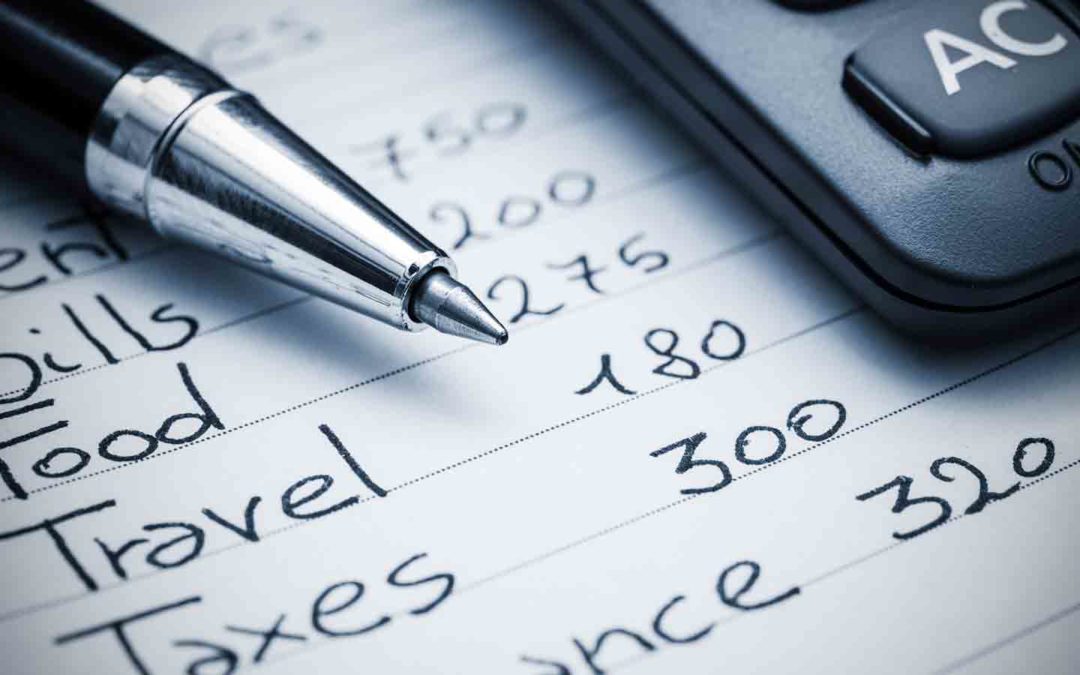The importance of making a budget is a financial lesson that cannot be overemphasized. If you and your family want financial security or want to make your financial goals a reality, following a budget is the only answer. You can follow these steps for setting up a realistic budget to help you along your financial journey.
Step 1: Calculate Your Expenses
Consult your bank statements, receipts, and financial files to find out exactly how much you are spending each month. You will get the most accurate financial picture if you calculate the average costs over 6 to 12 months. Some payments might be at irregular intervals or change over time, so working just with the previous month’s expenses will not give you accurate data. It is important to be very thorough and factor in all those unexpected bills and expenses.
Now add up everything spent over the last 6 to 12 months and divide by the number of months to get your average monthly expense amount. It is a good idea to add another 10% to your monthly expense amount.
Step 2: Determine Your Income
To get an accurate picture of your income, add any extra funds you receive throughout the year to your monthly salary. This can be anything from cash gifts, items you have sold, income from an extra job you do part-time, child support and alimony, interest and dividends, or income from rental. Do the same calculation over the same period as you did with your expenses to get your monthly income amount.
Step 3: Set Goals to Save Money and Pay Off Debt
Establish if you have a budget deficit or surplus by subtracting your monthly expenses from your monthly income. This will enable you to set realistic savings and debt payoff goals.
If you make more money than what you are spending – congratulations! You can use this surplus amount to pay off any debt or put it into your savings account. If you are spending more money than what you are making, it is time to relook your expenses and do some cutting. This will enable you to put money into your savings and stop you from going further into debt.
The best way to figure out where you can cut from your expenses is to track your spending and spending habits and record every expense for a month. Seemingly insignificant items such as a cup of coffee add up over time. For instance, even if you spend just R100 a week on snacks, which adds up to R5 200 a year, which is not insignificant. Be merciless in cutting expenses until your budget is in balance. You should have 10-20% of your income left over each month to add to your savings. If you are unable to cut a sufficient amount from your budget, consider ways you can increase your income.
Step 4: Record Spending and Track Progress
If you want to stay on top of your budget, you should record all your expenses and income. You can use various mobile apps to do this or create your own Excel spreadsheet. It will make you think twice before splurging when you must input everything you spend money on. It is also especially satisfying and motivating to record when you have met a savings goal or made an extra debt repayment.
Step 5: Be Realistic
Aim for sticking to your budget most of the time, and you are bound to reach your financial goals. Breaking your budget occasionally is OK, providing you get right back on track as soon as possible.
Make sure that you always have enough money for the things you need and for the things that are important to you by creating a spending plan for your money. By following your budget, you will be able to keep out of debt or help you work your way out of it and even have money available to save.
Should you need any assistance or advice on creating a personal or business budget, feel free to contact Deon or Marcel at IQ Accounting on 012 347 0561 or info@iqaccounting.co.za
You can also download this easy to use Personal budget template or Business budget template for personal and business use (derived from Smartsheet) to help you create a spending plan.

